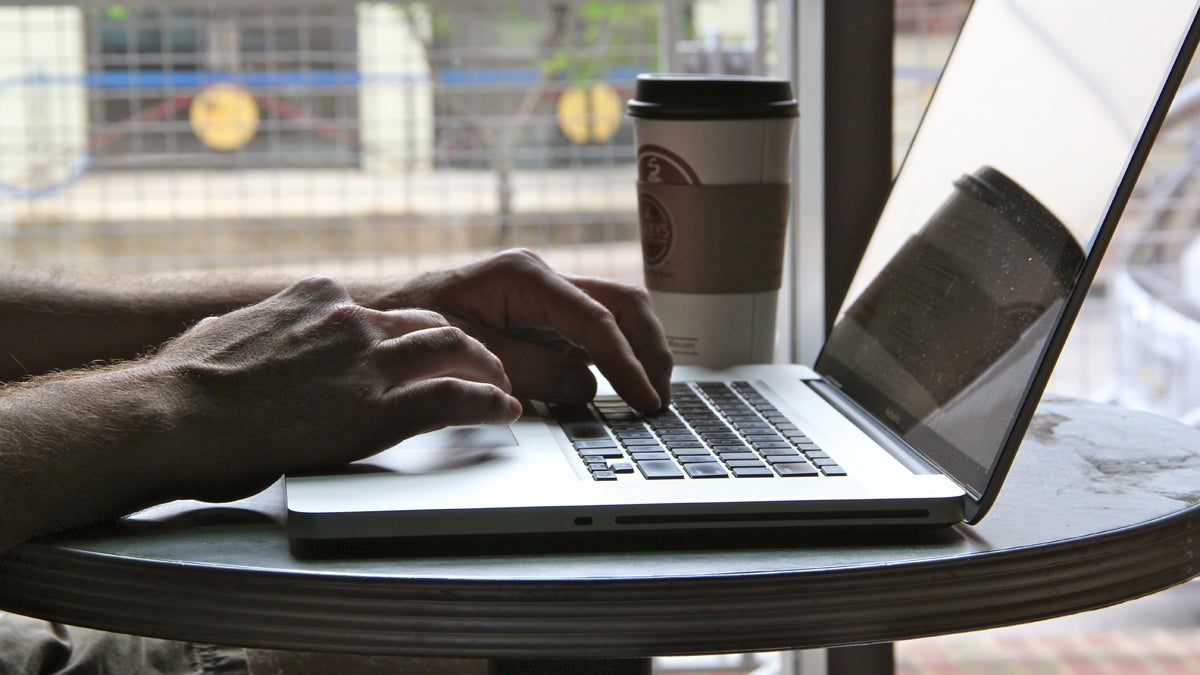Committing to a digital detox this New Year, even if only in baby steps

New research shows that Twitter use could actually be damaging to users' romantic relationships. (Emma Lee/ For NewsWorks file photo)
I commit to unplugging, to returning to an existence beyond my email, my text messages, and my Facebook page. Some New Year’s resolutions, I suspect, will run along these lines. I’ll give it a modest try myself.
I commit to unplugging, to returning to an existence beyond my email, my text messages, and my Facebook page, to observing more than a liquid-crystal display, to bearing witness to people in the flesh, to getting a life.
I commit to a digital sabbath.
Some New Year’s resolutions, I suspect, will run along these lines. I’ll give it a modest try, myself.
A digital sabbath — if not a day in every week, then a shorter but still purposeful time-out — is a reaction to the potentially usurping role in our lives of laptops and smart phones, electronic tablets and video games.
Tanya Schevitz recalls that she was reminded to stash her phone more often when her younger son, then age 3, started walking around the house saying, “Where’s my iPhone? I have an important call.”
Now this San Francisco resident works for Reboot, an international group of Jewish artists, writers and entertainers who are trying to reboot the spirit of the Jewish sabbath. Among their activities is an annual National Day of Unplugging to invite everyone to take a sabbatical pledge, regardless of religious faith.
Even gestures — courtesies — count for something. Schevitz notes the “phone stack”: Friends out for dinner stack their phones on the table; the first to touch a phone pays the tab for everybody.
Full stop, or just a comma?
Then there is the story of Levi Felix. Time was when he slept with his laptop on his bed, his phone under his pillow, during the rare hours he wasn’t working 24/7 for a start-up in California. His health collapsed, and after he emerged from the hospital, he and his girlfriend took off for two years of travel, gradually weaning themselves from the Internet and eventually settling for a time on a Cambodian island. Felix snorkeled, spearfished, meditated — and came home to thousands of emails.
Today, working from Oakland, the couple stage digital-device-free retreats and parties. Altogether, upwards of 5,000 people have participated. Felix calls the initiative Digital Detox, “a slow-down, not a start-up.”
Even Randi Zuckerberg — sister of Mark, onetime Facebook marketing executive, and Internet-etiquette adviser — speaks of the hazard of being “overconnected.”
You can find irony in this unease. Reboot offers a Sabbath Manifesto app. And how do the newly abstinent share their pledges? Through Facebook, Twitter, and Pinterest. How else?
But then, proponents of digital sabbaths seek only to take breaks from the digital world. They in no way seek to abandon it.
Nor do I. The evidence is the website you’re reading at this moment.
In my household of two, you will find two iPhones, three Macs, one iPod, an iPad, and a Kindle. For Christmas, the family gave an iPad to my mother, age 92. As an advance for humankind, digital technology need not rank so high as the wheel or the indoor toilet to be for me a thing of wonder. How is it that, with a gadget in the palm of my hand, I can instantly summon strains of Bach, as if direct from that heaven where the composer surely reposes?
Challenging an addiction
And yet our marvelous new tools, their ubiquity and ease of use, play to the human propensity to distraction and even what increasingly is called a frank addiction. A gaming junkie has remarked that “the biggest problem” in his life is finding enough time for Warcraft and City of Heroes. “But is that really a life?” he asked. “I don’t know anymore.”
Hence Internet and Technology Addicts Anonymous (ITAA). “This will spread just like [Alcoholics Anonymous],” predicts Hilarie Cash, a co-founder of ITAA, which is active in the state of Washington and Colorado. “I’m sure.”
Cash is also a co-founder of a therapeutic retreat center in Fall City, Wash., called reSTART. In addition to receiving counseling, the residents — most of them males in their late teens and early twenties — follow a regimen of chores, workouts, gardening, backpacking, and other engagements with the non-digital world. This boot camp lite runs no fewer than 45 days. Some clients take six months.
Indeed, people arrive at their sabbaths in many ways. This year five students at William Tennent High School, in Warminster, found themselves challenged to unplug for 10 days in an experiment conceived and reported by NBC10 Philadelphia. Students who had been generating thousands of text messages every month went cold turkey.
“It will change you, definitely,” one remarked afterward. Some families found more discussion at the dinner table.
Cold turkey isn’t for me. Even so, I could get a little more space between my digital life and the rest of it while I’m at home. So here goes with my New Year’s resolution: Keep more of my digital devices (but not my phone!) on the second floor rather than the first — out of habitual reach.
The stairs will be enough of an obstacle to force the question: Am I violating my sabbath?
—
Richard Koenig is a NewsWorks contributor. Formerly he was a reporter for The Wall Street Journal. He lives in Newtown Square, Pa.
WHYY is your source for fact-based, in-depth journalism and information. As a nonprofit organization, we rely on financial support from readers like you. Please give today.

